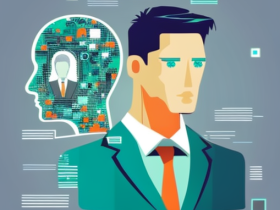In the realm of artificial intelligence, San Francisco’s OpenAI has once again astounded the world with the prowess of its AI-powered conversational agent, ChatGPT. In this illuminating piece, we delve into the remarkable achievements of ChatGPT as it conquers the rigorous domains of medical and legal examinations. It is an exploration of how ChatGPT, with the invaluable assistance of human expertise drawn from the University of Minnesota’s prestigious courses, emerged victorious in these intellectually demanding trials.
A Leap Beyond: ChatGPT’s Ascent in Law and Medical Examinations
ChatGPT’s triumphant journey through examinations encompassed a spectrum of challenges, prominently including the demanding field of law from the distinguished courses at the University of Minnesota. Additionally, the AI behemoth undertook segments of the US Medical Licensing Examinations, signifying its exceptional versatility. A testament to its boundless capabilities, ChatGPT even navigated an assessment originating from the esteemed Wharton School of Business at the University of Pennsylvania.
Collaboration Unveiled: The Nexus of AI and Human Ingenuity
The narrative of ChatGPT’s conquest, while indeed illustrious, was not without instances of collaboration. Although the AI entity managed to navigate these assessments with commendable finesse, there were junctures where human intervention was solicited to surmount certain challenges. This collaboration underscored the harmonious interplay between artificial intelligence and human expertise, an alliance that birthed unparalleled results.
Unraveling the Evaluation: ChatGPT’s Tryst with a Wharton MBA
A pivotal moment in ChatGPT’s journey occurred when a research article titled “Would Chat GPT3 Get a Wharton MBA?” emerged. In this scholarly work, researcher Christian Terwiesch stepped onto the stage to evaluate ChatGPT’s performance. The assessment was executed through a test designed to mirror the evaluative journey of MBA students. The results were nothing short of fascinating.
Terwiesch’s observations provided a multifaceted perspective. ChatGPT’s capacity to address fundamental inquiries within its domain was showcased in stunning clarity. However, a notable nuance emerged in its performance—the AI entity exhibited occasional miscalculations reminiscent of middle school-level errors. While capable of adapting its responses based on subtle cues, ChatGPT grappled with the complexity of certain inquiries, a testimony to the intricacies of human thought.
Addressing Anticipation: The Veracity of ChatGPT’s Evolution
Addressing the anticipatory fervor that enveloped the AI community, Sam Altman, the CEO of OpenAI, quelled rumors regarding the imminent iteration of ChatGPT. Altman made it unequivocally clear that the forthcoming version would not manifest as a significant leap beyond its predecessor, the iteration that had undergone public testing since December 1, 2022. This assertion tempered expectations while reinforcing the value of incremental and measured advancements.
Cognizant Caution: Navigating the Landscape of AI-Enabled Academia
Amid the triumphs and tribulations of ChatGPT’s odyssey, a pertinent consideration emerges—the role of AI in academic contexts. As the specter of academic dishonesty looms, scholars and administrators advocate for vigilance against plagiarism and examination fraud perpetrated through AI proxies. The development of robust mechanisms to discern AI-generated contributions from authentic human endeavors stands as an imperative for educational institutions.
In conclusion, OpenAI’s ChatGPT, bolstered by the synergy of AI acumen and human wisdom, surmounted intricate examinations across the legal, medical, and business landscapes. Its journey, marked by collaborative triumphs and enlightening nuances, showcases both the potential and limitations of AI in cognitive realms. As AI continues its ascent, fortified by incremental evolution, the human touch remains an irreplaceable facet in the tapestry of innovation.







Leave a Reply